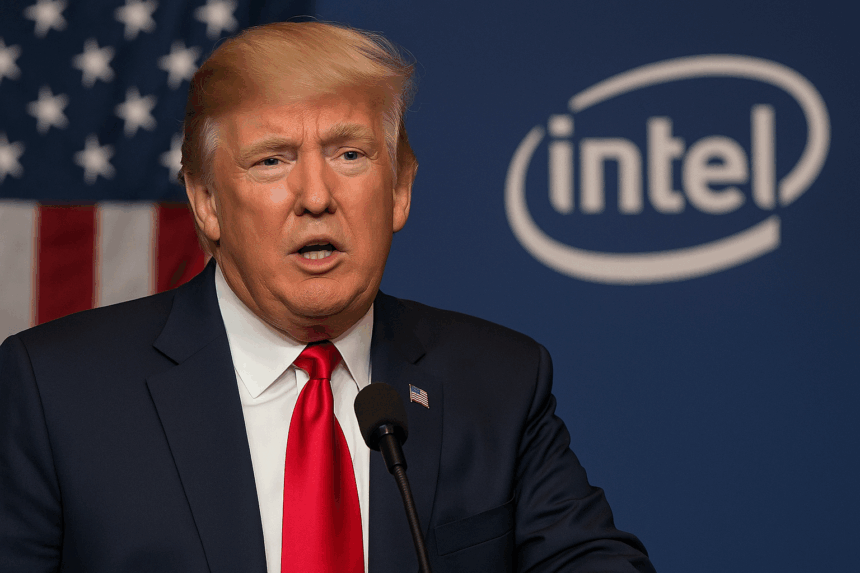President Donald Trump has demanded the immediate resignation of Intel’s CEO, Lip-Bu Tan, citing concerns about Tan’s business links with China. This sudden call comes shortly after Republican Senator Tom Cotton raised serious questions regarding Tan’s investments in numerous Chinese firms, some with alleged military ties. As Intel navigates a critical period marked by competition and internal challenges, this controversy adds new pressure on its leadership and future.
What’s Happening & Why This Matters

President Trump’s blunt demand for Intel CEO Lip-Bu Tan’s resignation surfaced on Truth Social, where he described Tan as “highly conflicted” and insisted there was no other solution. This message followed closely behind Senator Tom Cotton’s letter to Intel’s board chairman, Frank Yeary. Cotton questioned the board’s knowledge of Tan’s financial interests in over 100 Chinese technology companies, including at least eight linked to China’s military and the People’s Liberation Army. Cotton’s inquiry also highlighted Tan’s previous role as CEO of Cadence Design Systems, which recently pleaded guilty to illegally exporting sensitive semiconductor design technology to a Chinese military university between 2015 and 2021 — years during which Tan led the company.
While Senator Cotton called for transparency and investigation, President Trump escalated the issue by calling for Tan’s ouster just months after he took the helm at Intel. The controversy also coincides with Trump’s public frustration over the United States losing semiconductor dominance to Taiwan’s TSMC. He has repeatedly criticized the offshoring of chip manufacturing and teased the possibility of a 100% tariff on foreign semiconductor imports as a response.

Intel responded to the senator’s letter through a statement to PCMag. The company reaffirmed both Tan’s and Intel’s commitment to U.S. national security and their role in the country’s defense ecosystem. Intel expressed willingness to engage with Senator Cotton to clarify and address the concerns.
This episode represents a fresh challenge for Intel. The company is already dealing with a tough market, layoffs, and the struggle to regain a competitive edge. Intel is banking on its next-generation 18A manufacturing process to boost sales and technological relevance. However, Reuters reports that this process suffers from low production yields, threatening Intel’s profitability and its ability to meet customer demand. The pressure on Tan increases as Intel balances innovation efforts with the reputational risks stemming from these China ties.
The clash also reflects wider geopolitical tensions over technology leadership between the United States and China. As semiconductor chips become central to AI, defense, and economic power, questions about leadership integrity and national security arise frequently. The case of Lip-Bu Tan intertwines corporate governance with these broader concerns. It tests how companies like Intel navigate complex global relationships while meeting shareholder and governmental expectations.
TF Summary: What’s Next
Intel faces a pivotal moment with mounting scrutiny over its CEO’s connections to Chinese firms. How the company handles this will affect investor confidence, government relations, and its ability to compete in a high-stakes semiconductor race. Senator Cotton’s call for transparency and President Trump’s demand for resignation put the spotlight on corporate responsibility and national security in the tech sector.
Intel’s success depends on resolving leadership controversies, improving chip production yields, and regaining market trust. As the semiconductor landscape tightens amid global tensions, companies must demonstrate robust governance and clear alignment with national interests. Intel’s response in the coming weeks will influence its trajectory and the broader dialogue about tech sovereignty.
— Text-to-Speech (TTS) provided by gspeech


